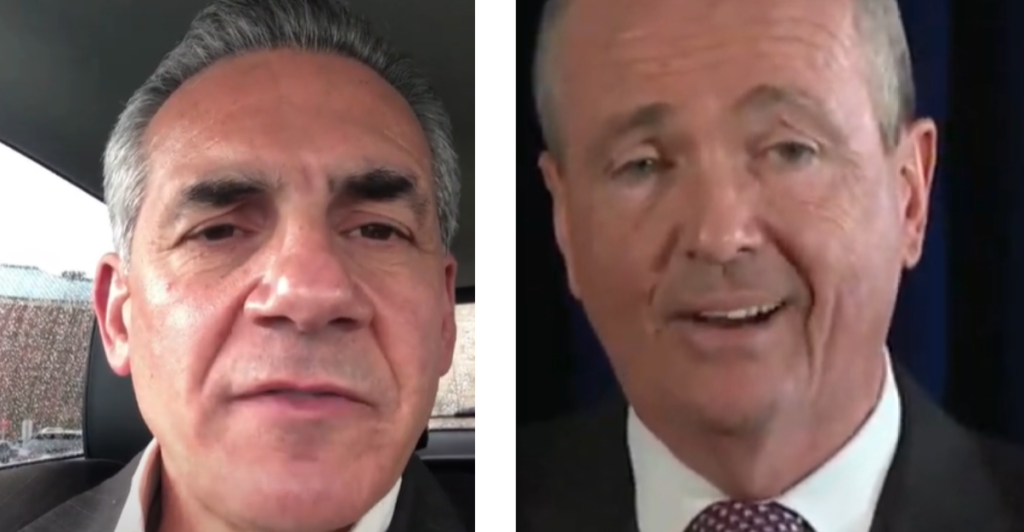How the 2022 Budget Impacts the Governor's Race

Remember 11 years ago when Congress was in the midst of debating the Affordable Care Act (Obamacare) and opponents objected to the speed with which it was being considered, House Speaker Nancy Pelosi replied: “We have to pass the bill so that you can find out what is in it.”
Gov. Phil Murphy and the Legislature’s Democratic leadership recall it all too well, following Pelosi’s advice to enact a $46.4 billion budget less than 48 hours after the 281-page document was released publicly. Republicans howled in frustration over a process which made a mockery of the governor’s repeated commitment to transparency while providing cover for millions of dollars in politically driven spending in a gubernatorial and legislative election year.
Armed with an unprecedented $11 billion surplus created by Federal stimulus funds, borrowing and better than anticipated tax revenue, the Legislature decorated the traditional budget Christmas tree with funding for a host of local projects which were not included in the governor’s original budget submission.
Often derided as “pork,” the add-on spending is more gently viewed as “one person’s pork is another’s compelling need.”
The leadership also disregarded its own rules by failing to provide the budget resolutions to support the additional spending, including a description of the program and the sponsor.
Senate President Steve Sweeney, (D-Gloucester), said the resolutions will “become available, hopefully right after the governor signs the budget.”
In other words, “We have to pass the bill so that we can find out what is in it.”
Pelosi would be so proud.
Of course, once the governor affixes his signature to the budget, all involved move on, the Legislature adjourns for the summer, interest and outrage dies out and all attention turns to the campaigns.
Budget add-ons are a long-established practice, followed by governors and legislatures of both parties, a point made by the leadership in characterizing it as a normal tradition as the July 1 deadline for the start of the new fiscal year approaches.
While some of the appropriations fall to the governor’s line item veto power, most survive in large measure due to political pressures from legislators or outside groups driving a private agenda.
Inserting language and appropriations in the budget circumvents departmental grant programs or spending formulas which require formal applications, subjecting the request to closer scrutiny to determine affordability and necessity.
Murphy defended the process and the unusually compressed time frame while, at the same time, hinting he’s open to some reform suggestions, including a waiting period before voting on new legislation and for public disclosure no less than 72 hours before voting is scheduled.
While he said he’d be willing to discuss reforms with the legislative leadership, it’s not likely to achieve a high priority nor, quite frankly, will it be looked upon with favor by the leadership.
Certain traditions --- senatorial courtesy, etc. --- are jealously guarded as legislative prerogatives and exempt from intrusions by the Administration.
The budget Christmas tree is certainly one of them.
Not surprisingly, Republican gubernatorial candidate Jack Ciattarelli pounced on the issue, pledging greater openness in the budget process and as governor would veto any legislation not subject to public scrutiny for at least a week.
Dipping into a reservoir of campaign hyperbole, Ciattarelli said he’d put an end to “backroom deals that disrespect the taxpayers, stifle free press and embarrass our state.”
The opportunity to take a swipe at Murphy over the governor’s past promises to instill a higher degree of transparency in government was too good to pass up for Ciattarelli.
He equated transparency with decency in government and said the budget process was lacking in both qualities.
Murphy is expected to sign the budget into law without change and it’s certain that Ciattarelli’s campaign will continue to hammer away at the issue, tying backroom political deals worth millions of taxpayers’ dollars to the highest average property taxes in the nation and suggesting that Murphy’s idea of transparency is a locked door.
To be sure, the overwhelming majority of New Jerseyans pay scant attention to the government budget process which, for many, is a largely unintelligible and confusing exercise.
It’s been said that when the budget is introduced, the only question from the public is whether their taxes will increase. Beyond that, the impact of spending billions of dollars is accepted as largely impersonal business as usual.
As details of the add-ons dribble out over the coming weeks, criticism will be leveled, and the process denounced. Reforms will be demanded, but meaningful change is unlikely.
Legislatures past and present hold to a “if it ain’t broke, don’t fix it” philosophy for a system from which all have benefitted at one time or another.
It may have been an unguarded moment when Pelosi uttered her “vote for it to find out what’s in it” retort to her critics, but there is more than a grain of truth in it.
It’s a New Jersey tradition.
Carl Golden is a senior contributing analyst with the William J. Hughes Center for Public Policy at Stockton University.





